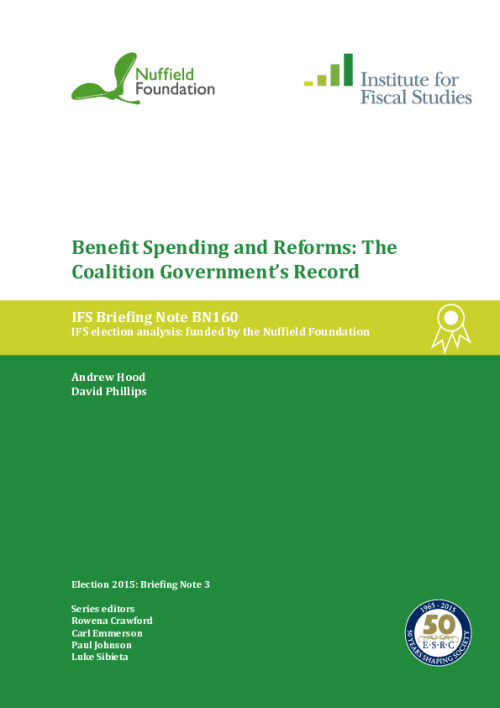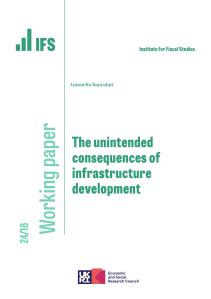The coalition government has implemented changes to the benefit system that mean spending in 2015–16 will be £16.7 billion (7%) lower than it would otherwise have been. Real terms benefit spending, however, is forecast to be almost exactly the same in 2015–16 as it was in 2010–11, at £220 billion. This reflects the effect of underlying economic and demographic factors which are pushing up spending – most importantly an ageing population, but also weak wage growth and rising private rents.
Of course there have been some controversial benefit cuts. But, most of the major structural changes, such as universal credit, have run into problems, and are yet to be delivered. So far then, the reforms actually in place represent an evolution of the systm rather than revolution promised. These are among the findings of a new Election Briefing Note on the coalition’s reforms to the benefit system, part of a programme of work at the IFS in the run up to the election, funded by the Nuffield Foundation.











